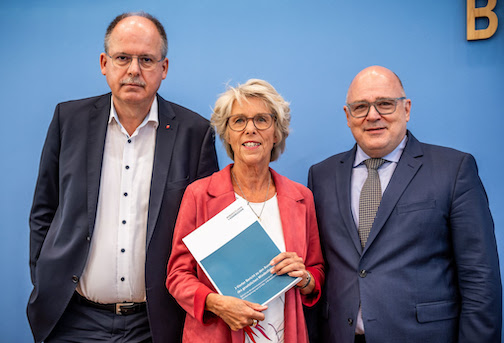By Jörg Ratzsch, dpa I Monday, June 26, 2023
BERLIN – Germany is slated to raise its minimum wage to €12.41 ($13.51) per hour beginning in January 1, 2024, under new recommendations from the country’s minimum wage commission.
The minimum wage would then rise again to €12.82 a year later under the commission’s recommendations, which are almost always ratified into law by the German government.
Labour representatives on the commission, however, opposed the minimum wage hike as insufficient for workers hurt by high inflation.
“The resolution comes at a time of weak economic growth and persistently high inflation in Germany, which poses great challenges for companies and employees alike,” the Minimum Wage Commission said in its decision.
The German Trade Union Confederation (DGB) sharply criticized the decision.
Board member Stefan Körzell, who is also a member of the Minimum Wage Commission, said on Monday in Berlin that the €0.41 nominal raise would in fact amount to an enormous wage cut for the country’s roughly six million minimum-wage workers, given high inflation.
Körzell said labour representatives had pressed for a raise to at least €13.50 but were rebuffed by company representatives and the chairwoman of the commission, Christiane Schönefeld. She weighed in to break the deadlock between members over how big of an increase to recommend.
At a press conference in Berlin, Schönefeld described difficult negotiations over the minimum wage that lasted into Monday. She said labour unions and companies came into the talks very far apart in their demands.
Social advocacy groups had pressed for a minimum wage increase to at least €14 per hour, citing sharply rising costs for consumers. But business leaders and some economists warned against too steep an increase given troubling signs from some economic indicators.
“An increase in the minimum wage that was too significant and too rapid would be very difficult for many retail companies to cope with,” said Stefan Genth, leader of the German Retail Association trade group.
Germany’s Social Democrat-led coalition government last year bypassed the commission to hike the country’s minimum wage from €10.45 to €12 in October. The increase had been a key campaign pledge of Chancellor Olaf Scholz.
Germany first introduced a statutory minimum wage in 2015. It was initially €8.50 per hour but has been increased repeatedly since then.
The commission is made up of three representatives from labour unions and three representatives from employer groups as well as two economists and the chairwoman. The commission is tasked with meeting every other year to set the minimum wage for the country.

